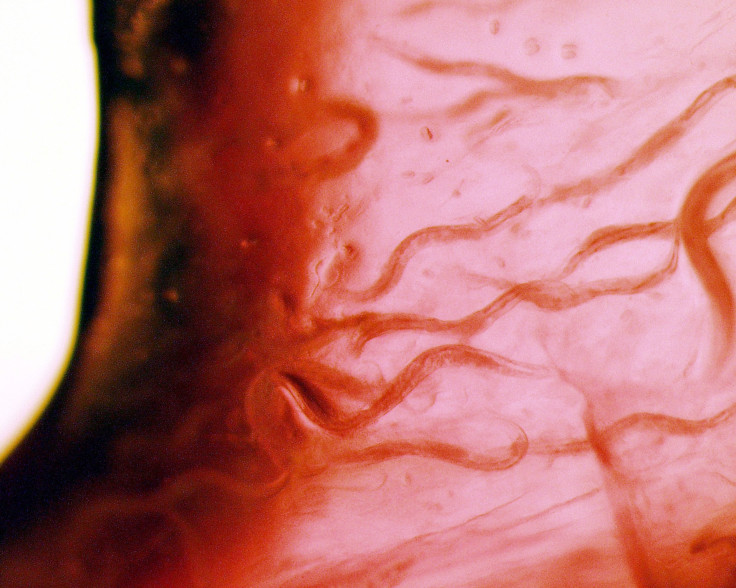Doctors Remove 38 MM Long, Live Roundworm From A Woman Who Complained Of Sore Throat

KEY POINTS
- Over 700 cases of roundworm infection from undercooked or raw seafood reported worldwide
- A woman with throat pain and irritation got live roundworm larvae removed from her tonsil
- Direct removal is the most effective after being diagnosed with such a nematode infection
Doctors surgically removed a 38 mm long roundworm from the tonsils of a woman who visited the hospital complaining of throat irritation.
A 25-year-old woman who was suffering from throat irritation and pain, five days after indulging in sashimi, a Japanese delicacy consisting of fresh raw meat or fish sliced into thin pieces, visited Tokyo’s St.Luke International Hospital to get it checked.
After a physical examination, her doctors told her that there was a live worm inside her tonsil, reported a new study published in the American Journal of Tropical Medicine and Hygiene.
A black worm that was 1.5 inches long and still moving inside her left tonsil was removed using tweezers.
DNA testing on the worm revealed that it was a fourth-stage larva of a parasitic roundworm called Pseudoterranova azarasi.
The patient’s blood test results were normal and there was also rapid improvement in her symptoms after the worm was removed.
Consuming raw or undercooked marine fish can cause infection with several helminths.
Pseudoterranova azarasi roundworms are one of the most common nematodes found in human beings. In 2009, another Japanese woman coughed up a 35 mm long worm and expelled it through her mouth.
The worm infects one’s stomach after they have consumed larvae in raw or undercooked meat or fish. More than 700 such cases have been reported worldwide. Infections in the mouth or pharynx region are rare and known to cause cough and tingling sensation.
As consumption of raw fish, sushi and sashimi have become popular, the study authors recommend a differential diagnosis of oropharyngeal parasitosis in patients complaining of tingling throat syndrome.
In Japan, most people who get infected with this roundworm suffer from acute or subacute abdominal pain and they get the larvae extracted from the stomach via laparoscopic surgeries. But in some patients, the diagnosis is made when the larvae enter the fourth stage and get expelled from the mouth.
Consumers should be made aware of the possible risk for fish-borne infectious diseases caused by parasites. Experts recommend that fish should be frozen and stored at −20°C for 7 days or freezing it at −35°C until it gets solid and then storing at −35°C for around 15 hours to get rid of parasites.
© Copyright IBTimes 2025. All rights reserved.






















